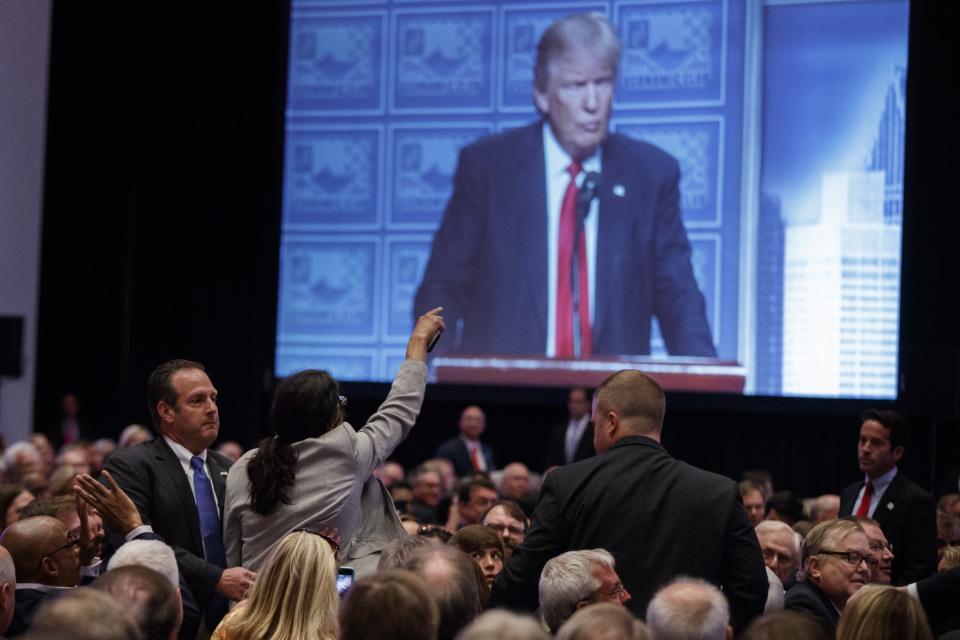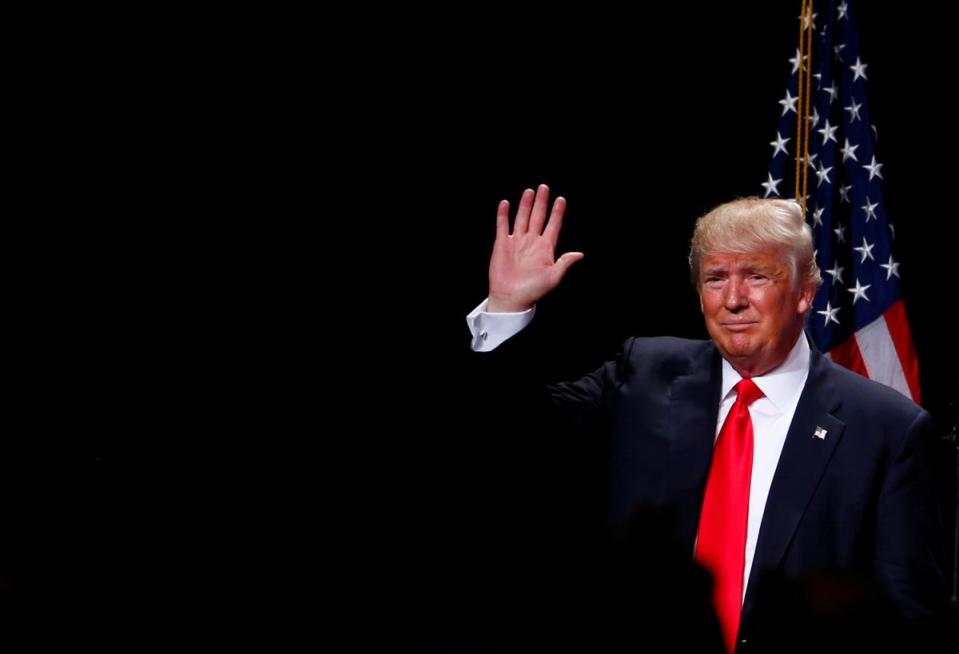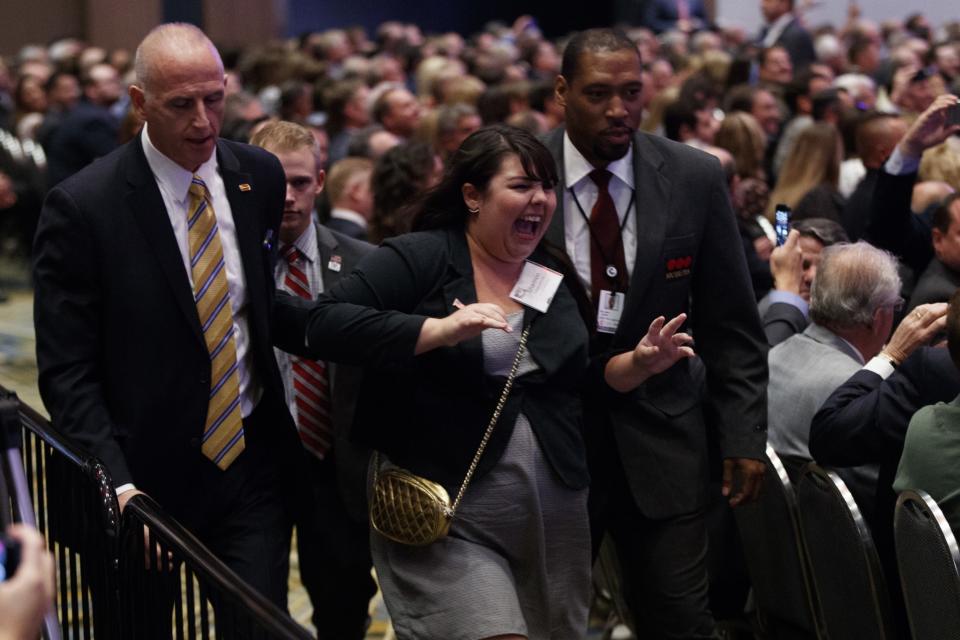Donald Trump unveils economic plans as protesters disrupt speech
Seeking to rebound after one of the rockiest weeks of his campaign, Donald Trump on Monday turned his attention back to the economy, delivering a major policy address in which he cast himself as a change agent who could create new jobs and wealth for struggling Americans.
Speaking to the Detroit Economic Club, Trump cited the city of Detroit as a “living, breathing example” of what he called Hillary Clinton’s failed economic policies, arguing that she supports higher taxes and failed business regulations that drove the Motor City into a slump. He cast her as a “stagnant” candidate who would simply offer “more of the same” to Americans struggling to make ends meet.
“She is the candidate of the past,” Trump declared. “Ours is the campaign of the future.”
But Trump’s effort to pivot to an issue that many polls suggest is a strength for him heading into Election Day was somewhat overshadowed by protesters who interrupted the GOP presidential nominee more than a dozen times during his roughly hour-long remarks.

Though Trump rallies are regularly interrupted by protests, his formal speeches, where access is more strictly controlled, rarely are. On Monday, Trump, who is known to verbally spar with protesters at his events, appeared irritated but was uncharacteristically reserved, ignoring them for much of the speech. “All very well planned out,” Trump finally said, when he was interrupted for the ninth time.
A few minutes later, as security escorted out protester No. 11, the GOP nominee offered a wry critique: “The Bernie people had far more energy and spirit,” he said, before quickly turning back to the speech.
The protests added a somewhat raucous atmosphere to a speech that merely reiterated many of Trump’s previous policy proposals, including his pledge to tear up trade agreements including NAFTA and the Trans-Pacific Partnership in order to pursue his goal of putting “America First.” He also repeated his pledge to penalize companies to move their operations overseas and to crack down on countries that manipulate currency.
Reading from a teleprompter, Trump offered some new details of what aides declared to be the framework of his “economic vision” for the country. Among other things, he promised to lower the corporate tax rate from 35 percent to 15 percent. He vowed to eliminate the estate tax, calling it “just plain wrong.” And he promised to curb regulations on businesses, which he argued would encourage new investment. “I am going to cut regulations massively,” Trump promised.
In what could be an attempt to woo Republican lawmakers still wary of his campaign, Trump also aligned himself with a tax proposal pushed by House Republicans that would redesign income tax brackets and reduce some of the burden on the poor.

“We will work with House Republicans on this plan, using the same brackets they have proposed: 12, 25 and 33 percent,” Trump declared. “For many American workers, their tax rate will be zero.”
That pledge appeared to contradict a tax plan Trump unveiled earlier in his campaign, in which he said he would cut the top tax rate from 39.6 percent to 25 percent.
But although Trump’s speech had been billed as remarks that would more specifically outline his economic policies, the candidate was still vague on many issues, promising that he would unveil details in coming weeks.
Trump announced that if elected he would allow families to write off childcare expenses on their taxes but declined to offer more specifics. He said he was still working on the plan with his daughter, Ivanka, who referenced her father’s support on the issue in her speech at the Republican National Convention last month.
Perhaps more than anything, Trump’s speech was an attempt to turn the page after days of turmoil, including controversy over his criticism of a family of a fallen Muslim soldier. Trump’s remarks drew rebukes from many Republicans including House Speaker Paul Ryan and Sen. John McCain. In retaliation, Trump declined to endorse their reelection bids, before reversing himself later in the week. All of the drama, combined with the Democratic National Convention,
sent Trump’s poll numbers plummeting, prompting handwringing from Republicans who were already reluctant to back his campaign.

While they reject the idea of a reboot, Trump aides are clearly trying to get back on more solid footing. The candidate is scheduled to go back to North Carolina Tuesday, a military-heavy battleground that will be a test of Trump’s standing with veterans, before heading to Florida and Pennsylvania later this week.


